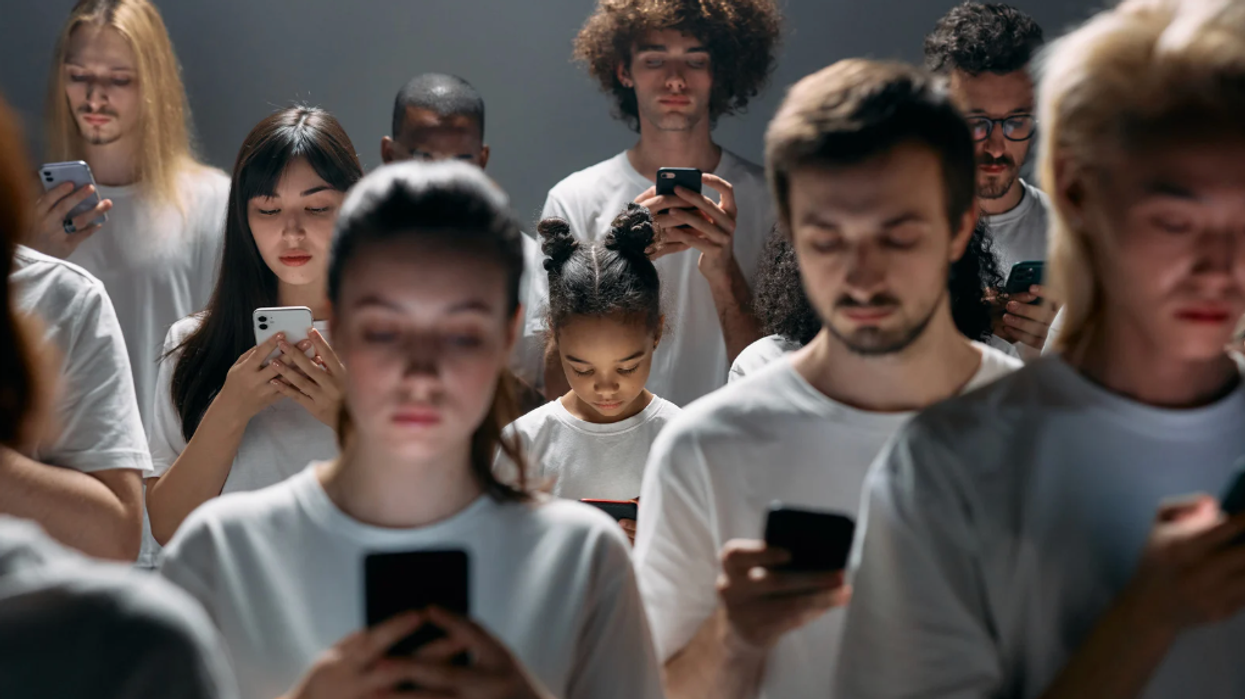Do you have trouble concentrating? Are you finding yourself dropping everything to respond to a text, see what that ping notification was, or address the quiet rumble coming from your phone? Then it might be too late if you’re over the age of 25.
New York University professor and psychologist Dr. Jonathan Haidt, was recently on The Oprah Podcast to discuss the ever-growing problem of concentration among young people due to their phone use. Haidt claims that habitual phone usage and social media has harmed teenagers and young people’s ability to focus and concentrate, two important skills that are necessary in any profession. “These things are designed to interrupt you,” he explained.
- YouTubeyoutu.be
A 2021 report showed that teenagers aged 13 to 18 spent an average of eight hours and 39 minutes per day on screens. Another report from 2023 showed that teens check their phones over 100 times daily to address an average of 240 notifications they receive daily. This leads to breaks of concentration and prolongs tasks, even enjoyable ones such as watching movies, playing games, or enjoying a meal with friends. But it might not be too late.
“It is urgent that you restore your brain,” said Dr. Haidt. “By 25, the frontal cortex is kind of done changing. … At that point, it’s going to be much harder to get your attention back.” Note that if you’re over the age of 25, Haidt said that changing and restoring your brain’s concentration would be “harder” but not impossible.
So what does the doctor recommend? “I would recommend going cold turkey [from social apps] for a month, if you can,” said Haidt.
He says, “The way to get out of a social trap is together.” He recommends finding three or more friends and family members to shut off or remove their social media apps from their phones for a month, for a greater chance for everyone involved to succeed.
He also recommends providing substitute activities whenever the urge to check their phone becomes too much to bear. He recommends replacing scrolling on your phone to watching a movie all the way through, writing in a handwritten journal, exercising, reading a paperback book, and essentially doing analog activities. If you did have three other friends or family members join you on your social media fast, you could do activities with them like going out for coffee or making a meal together.
@livingwith.adhd My social media addition is ruining my life, but how do i break the addiction? #socialmediaaddiction #socialmedia #livingalone #livingaloneinmy20s #livingalonediaries #dopaminediscipline #adhdaddiction #adhdinwomen
But even after a month away from social media, it's recommended that you change your relationship with it if you reinstall the apps on your phone. Curate your social media feeds and unfollow accounts of folks who aren’t close friends, family, or coworkers. Set up a time per day with a time limit to check on your social media and ignore notifications until that time frame. You can also create “no social media zones” such as your workplace, school, or areas in the home (“No phones at the dinner table,” for example). This can not only help you rebuild concentration and focus over time, but is just psychologically healthier for you overall.
If you’re under 25, it’s not too late to make the changes before your brain cements the harmful habits of extended phone use. If you’re older, it’s still worth a try. Either way, it’s a worthwhile attempt to improve your overall life if you’re struggling.






















 What foods would you pick without diet culture telling you what to do?
What foods would you pick without diet culture telling you what to do?  Flexibility can help you adapt to – and enjoy – different food situations.
Flexibility can help you adapt to – and enjoy – different food situations.
 Anxious young woman in the rain.Photo credit
Anxious young woman in the rain.Photo credit  Woman takes notes.Photo credit
Woman takes notes.Photo credit 
 Revenge can feel easier than forgiveness, which often brings sadness or anxiety.
Revenge can feel easier than forgiveness, which often brings sadness or anxiety. 
 In the past two years, two malaria vaccines have become available for babies starting at 5 months of age.
In the past two years, two malaria vaccines have become available for babies starting at 5 months of age. By exploiting vulnerabilities in the malaria parasite’s defense system, researchers hope to develop a treatment that blocks the parasite from entering cells.
By exploiting vulnerabilities in the malaria parasite’s defense system, researchers hope to develop a treatment that blocks the parasite from entering cells. Created with
Created with